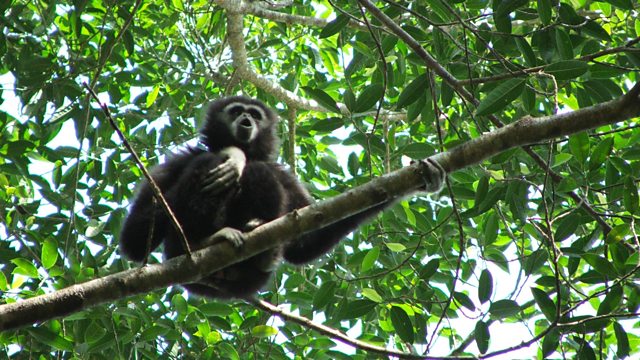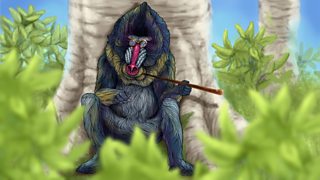
Gibbon calls 'could shed light on human speech'
The secret communication of gibbons has been interpreted for the first time in a study published in the open access journal BMC Evolutionary Biology.
The research reveals the likely meaning of a number of distinct gibbon whispers, or “hoo” calls, responding to particular events and types of predator.
Esther Clarke, lead author of the research and a Research Fellow in the Department of Anthropology at Durham University, said a male and a female will sing together in the morning time - in what can be both a territorial and a sexual duet.
She said the “hoos” were distinct from each-other in significant ways, to the extent that they may provide clues on the evolution of human speech.
“It gives us clues to the evolutionary roots of complex communication-like language,” she said.
Duration:
This clip is from
Featured in...
![]()
Primates—Natural Histories, Monkeys And Apes
A selection of programmes and clips about monkeys and apes.
More clips from 08/04/2015
-
![]()
Could an algorithm run the government?
Duration: 04:58
-
![]()
Pianist Leif Ove Andsnes on Beethoven
Duration: 03:16
-
![]()
Behind the scenes at the Today programme
Duration: 04:09
More clips from Today
-
![]()
Tim Curry on stardom and life after having a stroke
Duration: 04:41
-
![]()
Badenoch wants PM to address China spy case questions
Duration: 02:50
-
![]()
Freed activist 'doing much better' than expected
Duration: 11:15
-
![]()
The new EU fingerprint travel system - explained
Duration: 06:37









